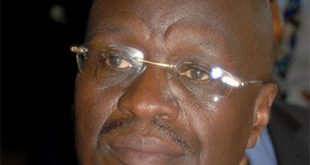
By Mubatsi Asinja Habati
Three things had to be proved: Was Kasirye murdered? Was his murder malicious? Did Kajubi procure or participate in the murder?
When High Court Judge Justice Moses Mukiibi on April 24 acquitted Kampala businessman, Kato Kajubi, of the charges of murdering 12 year-old Joseph Kasirye, he sparked off claims of a miscarriage of justice.
Kasirye was killed in ritual murder on Oct. 27, 2008. During the trial, Umar Kateregga, a witchdoctor confessed to have killed the boy allegedly on Kajubi’s orders. A 10-litre jerrycan which the boy carried as he went fetch water on the day he was killed and blood-stained clothes belonging to Kateregga were produced as evidence. Police DNA tests confirmed that the blood stains on Katerega’s clothes were the blood of the boy who was slaughtered like an animal and his body parts used in acts of sorcery. He and his wife Mariam Nabukeera were arrested and accused of the Joseph Kasirye’s murder jointly with Kajubi. The duo was freed under unclear circumstances. Only Kajubi went to trial.
Even before the trial started, some members of the public had pronounced Kajubi guilty. This group was shocked when the judge acquitted Kajubi. Ritual murders have recently received wide media attention and the trial of Kajubi was believed an important step in the fight against the barbaric vice.

“Obviously the judge was bribed,” became a popular albeit unsubstantiated claim. It was not out of the blue. The Uganda National Integrity Survey by the Inspectorate of Government has consistently named the judiciary among the most corrupt institutions. In the latest survey, released last year, 79 percent of respondents said the judiciary is corrupt; the second highest figure after the police.
In this case, however, Justice Mukiibi is no stranger to high profile cases. In Jan. 2000, he sentenced to death two Indians, Kooky Sharma and his brother, Devinder Sharma for the murder of Mrs Renu Joshi in a sensational case that lasted over a year.
In May 2001, he sentenced to death Shadrak Magara Rwakasisi for the murder for the murder of Warren Bantariza, a Makarere university Student, at Botanical Gardens, Entebbe.
Therefore, Justice Mukiibi would have had no qualms in sentencing Kajubi to death had he deemed it appropriate.
So why didn’t Justice Mukiibi see merit in the prosecution evidence which, in his ruling, he described as unreliable and weak to prove beyond reasonable doubt that Kajubi participated in the murder.
In the Kajubi case, three things had to be proved as the standard of proof is beyond reasonable doubt. The prosecution was to prove that Joseph Kasirye was murdered, and that his murder was malicious and thirdly that Kajubi procured or participated in the murder.
The judge said the prosecution failed on the third element and thus could not make Kajubi defend himself thereby acquitting him. In our legal system there is an important principle that it is “better to set free a thousand criminals than victimise an innocent person.”
Police’s role
Bob Kasango, a prominent lawyer in Kampala, says the Kajubi case exposed weakness in the investigative arm of the state and highlights the need to strengthen it. “This can begin by training investigating officers more and especially in evidence handling skills and scene of crime technics. But more important, forensic investigative techniques. And clearly they also need to involve the DPP more at the investigation stage of their work”
The police have been criticised for the way they handle criminal cases in the country. According to lawyers who spoke to The Independent, since the biggest percentage of arguing the criminal cases depends on facts and later the application of the law, the police needs better technical training in gathering facts.
In the Kajubi case, the judge criticised the police on the manner they handled the crime report. Uganda Police has no forensic crime laboratory and yet the Kajubi case required a lot of forensic expertise, according to criminal law experts. Although the state attorney proved that the trail of the car tyres at Kateregga’s home, matched those made by Kajubi’s car, Kajubi had indicated he knew Kateregga and prosecution failed to prove the car carried the body parts of the deceased because there was no DNA evidence.
As a result, the prosecution lawyers say, getting evidence to pin Kajubi was difficult and the only option was to have the co-accused, Kateregga and Nabukeera, turn state witness and testify against him. They were the eyewitnesses to the murder.
However, the judge said that their versions of evidence did not tally with that of another prosecution witness named Paul Kasirye. Kasirye, who is an uncle of the dead boy, told court that a 10-litre jerrycan which Joseph Kasirye carried as he went fetch water and blood stained clothes belonging to Kateregga were found in Kateregga’s home. Yet Kateregga had testified to court that the murder of Kasirye was carried out as carefully as possible by one Stephen under his and Kajubi’s watch at night. The judge ruled that this was a new version of killing different from the one Kateregga submitted.
In the end, the judge ruled that Kateregga lied before court in narrating the circumstances of the murder and so his evidence was unreliable. Justice Mukiibi said there was no reasonable explanation for the witness to tell lies. He also added that the prosecution evidence failed to link Kajubi to the murder although court agreed that Kasirye was murdered in a gruesome manner.
Poor strategy
On realising the contradictions in the evidence by the principal witnesses, the State Attorney Vincent Wagona, asked the court to believe part of evidence that Kateregga gave which was truthful and reject what is untruthful.
The court accepted the evidence that Kajubi had called Kateregga on October 27 and 28, 2008. But the phone print outs could not divulge the content of the phone call from Kajubi to Kateregga. The young Kasirye was brutally murdered on October 27. The phone computer print out of the calls between Kajubi and Kateregga indicate that the call was made during day, evening and night time. But the judge said many people had communicated with Kateregga during these days and wondered why the police was interested in Kajubi’s conversation with Kateregga leaving out others.
Justice Mukiibi said: “In my view the telephone calls do not say that Kajubi went to Kateregga’s home to collect the head and private parts of the boy. I find Kateregga and Nabukeera, the two principal witnesses, so unreliable that no reasonable court can safely convict on their evidence.”
Lawyers like Renato Kania of Alaka and Company Advocates told The Independent that the best chance the prosecution team had was to make the Katereggas plead and confess in return of a lenient punishment and give evidence implicating themselves the more as they link the accused to the murder.
“Instead the Katereggas gave evidence as they defended themselves causing the judge to doubt the authenticity of their evidence. Their circumstancial evidence was bound to be treated with the greatest suspicion.”
He says a law about witness protection in case of the co-accused turns to become witness needs to be enacted so as to fight organised crime in the country. Kania agrees the case was worsened by the police’s handling of exhibits.
The police and the state prosecutors have been on the spotlight. Their competence in handling similar cases has enlisted a mammoth of questions. In 2006, a prominent case involving the murder of Robinah Kiyingi was lost and there are now concerns on the manner in which the police are handling investigations of the case involving the murder of Brenda Karamuzi, whose body was discovered in a septic tank in the home of one Tom Nkurungira.
Jury system?
Lawyers who spoke to The Independent about Kajubi’s acquittal say the judgement highlights the challenge in Uganda’s trial system which leaves judgement solely in the hands of the judge.
Some called for an adoption of the Jury system as in the U.S.A. Under this system, the jury offers an assessment of a case from different individual members to reach a verdict.
“A testimony that a judge may treat as unconvincing may nevertheless persuade a jury to believe otherwise. But the public must be careful not to make wild conclusions. The standard of proof in criminal cases is very high and what may seem obvious is not necessarily so,”says Kasango. Although Uganda has court assessors designed to provide similar input, they are not as effective for numerous reasons.
However, Kania says involving the jury in deciding cases is prone to err as it is dominated by sentiments unlike the judge who follows the rules of evidence to pass judgement. “Imagine a person who was raped but concealed it and on selection of the jury she does not reveal she was raped and sits on the jury to trial a rape case. This person will base on the experience she went through and already convicts the accused even before the hearing begins,” says Kania.
These legal arguments, however, do little to assuage public anger that a crime was committed and both the police and the judicial system appear incapable of bringing the criminal to justice.
 The Independent Uganda: You get the Truth we Pay the Price
The Independent Uganda: You get the Truth we Pay the Price



